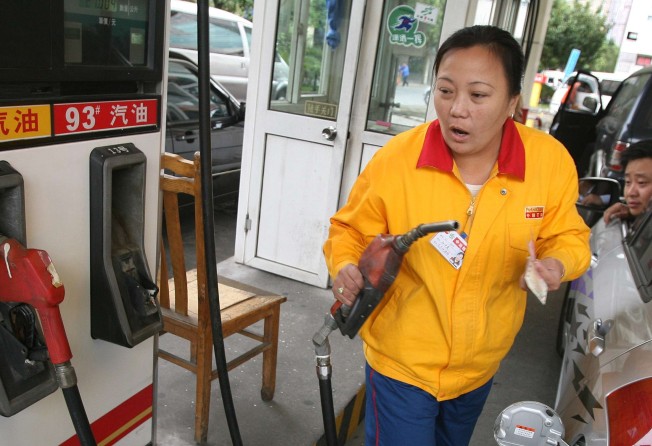Brightoil banks on new e-commerce platform for growth in China
Company looking to diversify into downstream businesses like car insurance

Brightoil Petroleum, one of China’s largest private oil and gas producers, listed in Hong Kong, plans to have 10 million clients and gross merchandise volume (GMV) of 8 billion yuan (HK$9.3 billion) from its new e-commerce platform by the end of this year, according to company officials.
The company’s e-commerce platform provides fuel buyers in China a way to lock in prices and make profits if prices increase later.
Brightoil Online, the online platform that was launched on January 12, allows car drivers to buy gasoline and diesel through mobile applications at current price levels. Buyers can “withdraw” the fuel at Brightoil’s 1,000 allied gasoline stations around the country, or keep it and cash in by selling them back to the company through the app when Chinese government raises fuel prices.
The fuel bought online is physically backed without any leverage. Brightoil, makes money from the price difference in domestic and international fuel prices.
The platform has attracted more than 1 million clients and 1.5 billion yuan of GMV in the past eight months, according to Xu Jie, chief operating officer of Brightoil E-commerce (Shenzhen), a fully owned subsidiary of Brightoil.
Fuel prices in China are adjusted by the National Development and Reform Commission, the country’s top economic planner, and is based on a pricing mechanism evolved in 2013. China has raised fuel prices six times and cut it three times so far this year.
“State-owned oil producers are also willing to enter the e-commerce segment, but we are more flexible in exploring the online business. We like to be a ‘noisemaker’ in this field,” said Danny Tan, chief financial officer of Brightoil Petroleum.
Customers could have made gains to the tune of 8 to 10 per cent on average if they had bought fuel in January, Tan said.
Private car owners are the platform’s major users till date and account for 37 per cent of the total client numbers, while car-hailing app drivers made up another 13 per cent. The app also attracted taxi drivers, logistics firms, and wealth management investors, Xu said.
China has more than 150 million car owners and its annual fuel demand is estimated at about 4 trillion yuan. The numbers will continue to rise as it would take some before new energy vehicles have an impact on the market, Xu said.
Brightoil plans increase the number of its allied gasoline stations to 5,000 by the end of next year and expects the platform’s GMV to reach 1 trillion yuan by 2018, Xu said.
China has approximately 100,000 gasoline stations, half of which are controlled by the three largest state-owned oil makers.
Brightoil also has big plans for its downstream business and is looking to enter the car insurance business next year.
“The e-commerce platform will become the new profit engine in the long term, but in the short term it would increase marketing expenses for Brightoil,” Lawrence Law, an analyst at BOC International said in a research note.
Brightoil reported HK$522.96 million net loss for the six months ended December 31 due to impairment charges on its Caofeidian oilfields due to continued downturn in international oil prices. Interim revenue fell 52 per cent to HK$21.65 billion as trading and upstream crude oil operations were hurt by the oil price fall.
“We will still seek acquisition opportunities to expand our upstream business,” Tan said.